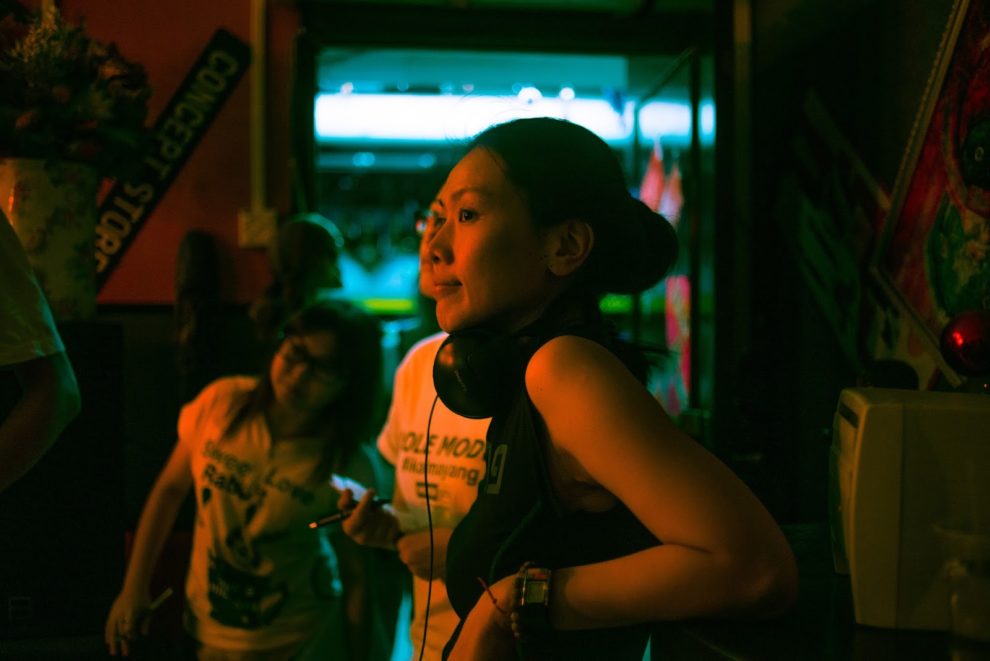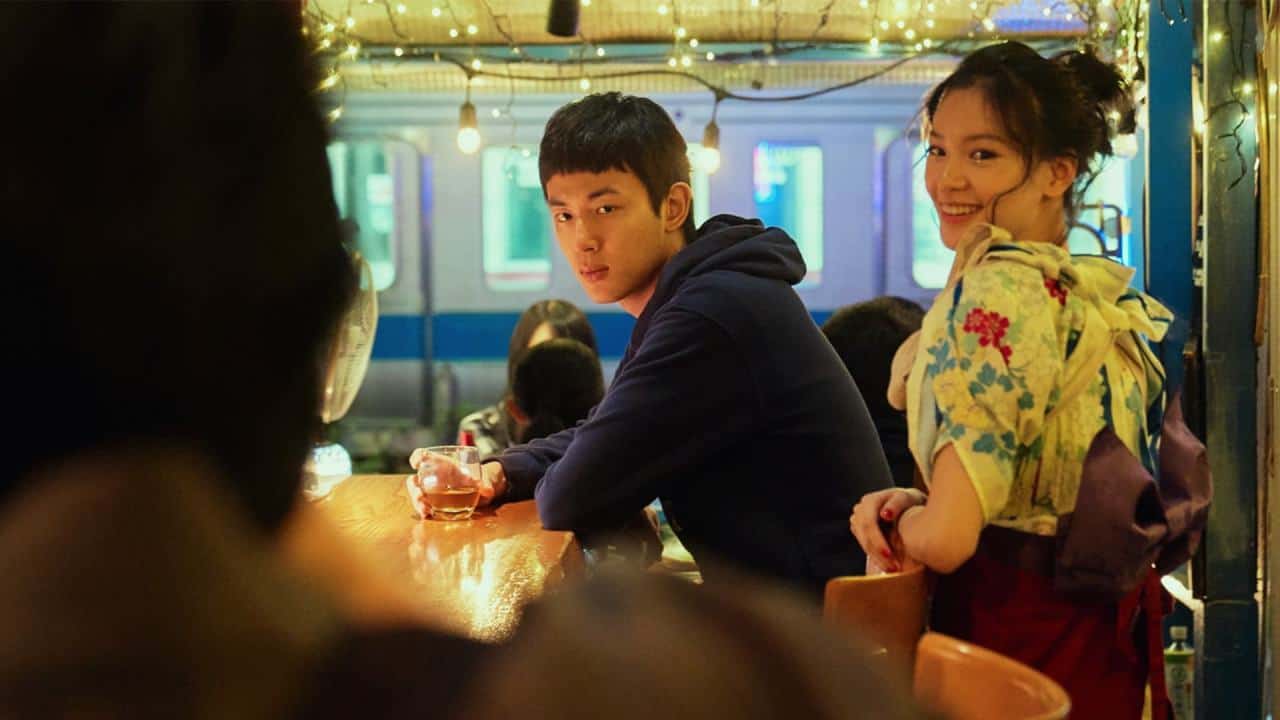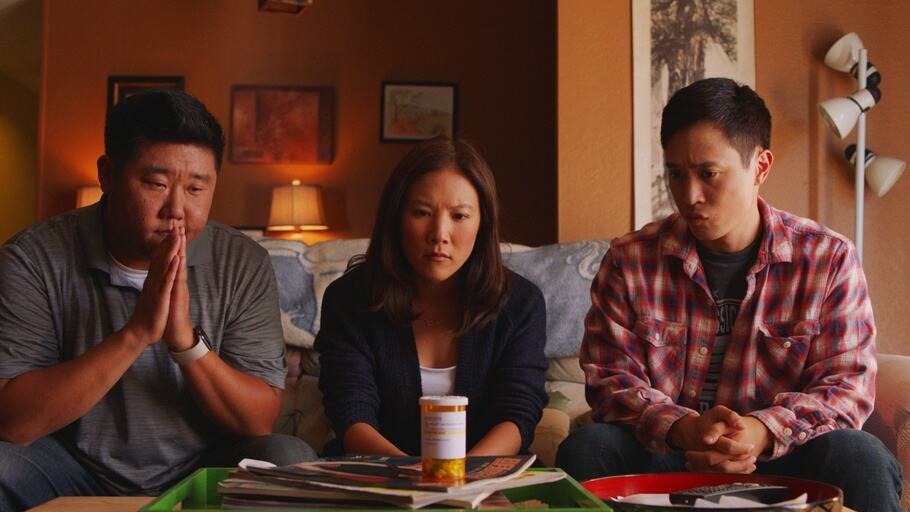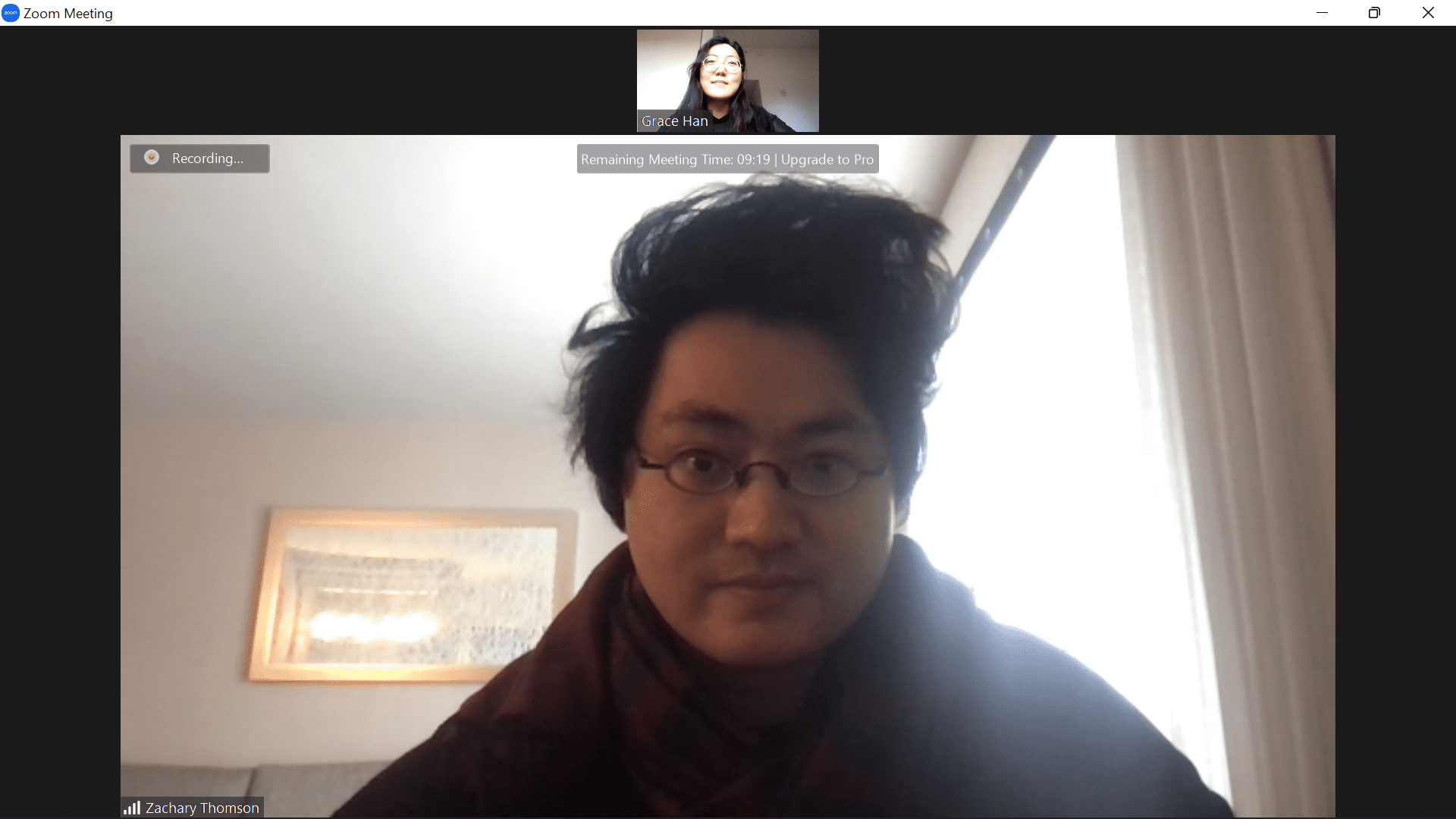Tan Chui Mui is a Malaysian film director who has been actively working in Malaysian independent film industry. She's one of the pioneers of Malaysian New Wave Cinema in the early 2000s. Her short films have won numerous prizes and awards in European festivals and her first feature film “Love Conquers All” won the New Currents Awards and Fipresci Award at the 11th Busan International Film Festival in 2006 and the Tiger Award from the 36th International Film Festival Rotterdam. Her 2010 second feature film, “Year Without a Summer” was selected for the Asian Cinema Fund, receiving funding for both the script and post-production. She has been actively involved in the Malaysia independent film scene, working as a producer, editor, script writer, and occasionally an actress. In 2004, she set up Da Huang Pictures with Amir Muhammad, James Lee and Liew Seng Tat. In 2015, she inaugurated Young Filmmakers Workshop under Next New Wave with the support of National Film Development Corporation (FINAS) and in 2017, she started SeaShorts, a film festival focus on showing Southeast Asian short films. Her latest film “ Barbarian Invasion” won the jury prize at a Shanghai film festival – hailed for continuing to “subvert and surprise”.
On the occasion of “ Barbarian Invasion ” screening at New York Asian Film Festival (NYAFF), Adriana Rosati, Maja Korbecka and Łukasz Mańkowski speak with Tan Chui Mui in a round table, about the development of the idea, the concept of reclaiming the body, the collaboration with musician Kamal Sabran and more.
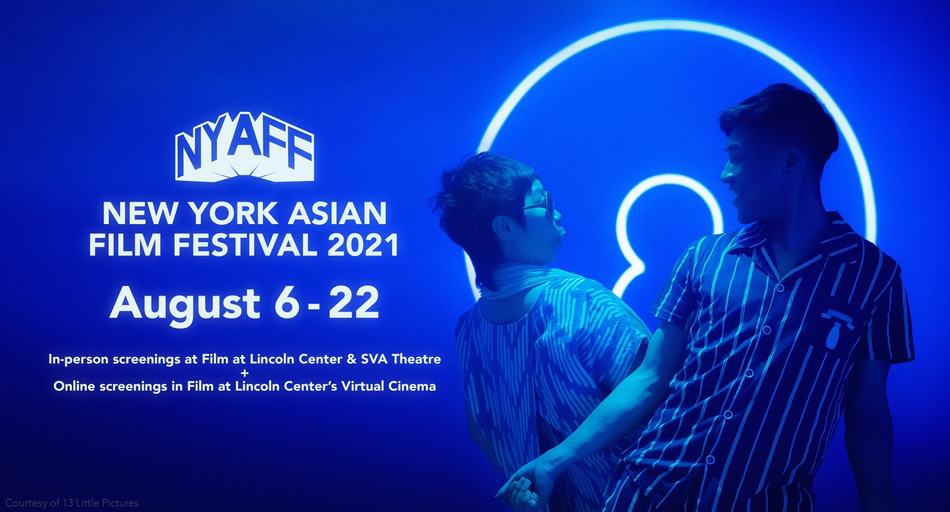
Adriana Rosati: “Barbarian Invasion” has such a complex and layered narrative. Can you tell us about the writing process and the development from the initial idea and the inspiration to the finished script?
With Yang Jin, the producer, we actually just walked across each other during a break in March 2019 in Hong Kong during HAF (Asia Film Financing Forum) and he asked me if I could make a low-budget film. It was quite strange, totally awkward, but I said, “Yeah, sure”. The next morning, we had breakfast in the hotel with Jacob Wong from the Hong Kong International Film Festival, and he started planning the whole project. Three months later, at the Shanghai Film Festival, they announced this project called Back to Basic, involving six directors, each of whom would shoot a film with about one million RMP (yuan), one of whom was me. At the time, I didn't have an idea for the story yet, I was just thinking that I wanted to make a very low-budget sci-fi. I told Yang Jin that even the title I had in mind was a “fast-food” idea, “I Just Want You to Love Me”.
After Shanghai, I went to Beijing, to an artist village called Songzhuang just outside of the city. There, I met Wai Hoong Wong, who acted in Jia Zhangke's first film “Xiao Wu” (The pickpockets). He is a very funny guy and every time we meet, he would come up with jokes about a supposedly new idea, like he suddenly has a residency in Fujian province or he's running a school or something. This time, he said he wanted to direct an action film with a female spy and he asked me to be the main actress. I knew he was joking, but I went along, suggesting, “How about you send me to some martial art training now and spy training then” (laughs). This joke actually gave me the idea of making a film about this independent filmmaker, who wants to make a film about a woman spy, and sends this actress to train and then the movie does not happen, and she ends up fighting in MMA.
So, I had the idea and tried to work on it, but like many filmmakers, I did not manage to turn it into a film for a long time. I had a really bad writer's block, I couldn't really write, especially due to being pregnant and then having a kid, something that did not allow me to sit down and read or focus on anything. So, I thought that maybe I should work differently: I will not write a script at all and I will just go ahead and film something.
So, a month after the announcement, in July, I took a few friends, one camera man and one assistant director and one sound man and we flew to Phuket, Thailand, to start filming… something. I told my friends that I will just film as I am writing the script and that we will make it like a mockumentary of sorts, a behind the scenes about a camera crew sent by a director to film the process of an actress who is learning martial arts. That was the initial idea, and the title was still “I Just Want You to Love Me” at that point.
But right before we left for Phuket, it turned out that no one could take care of my kid, and I ended up taking him along. We were still hoping that maybe he could stay somewhere when I go for training, but it turned out that it was impossible, he just refused and I cannot even begin to explain how difficult it is to control him in any way. So, we ended up changing the story to an actress who cannot train due to her child, and that is when I changed the title to “Barbarian Invasion” to emphasize on how having a kid is stopping the protagonist from doing anything, that she has her whole life controlled by her kid. Eventually, the story became more about the idea of reclaiming your body, because, ever since I got pregnant, I felt that I lost control of my own body and it doesn't belong to me anymore.
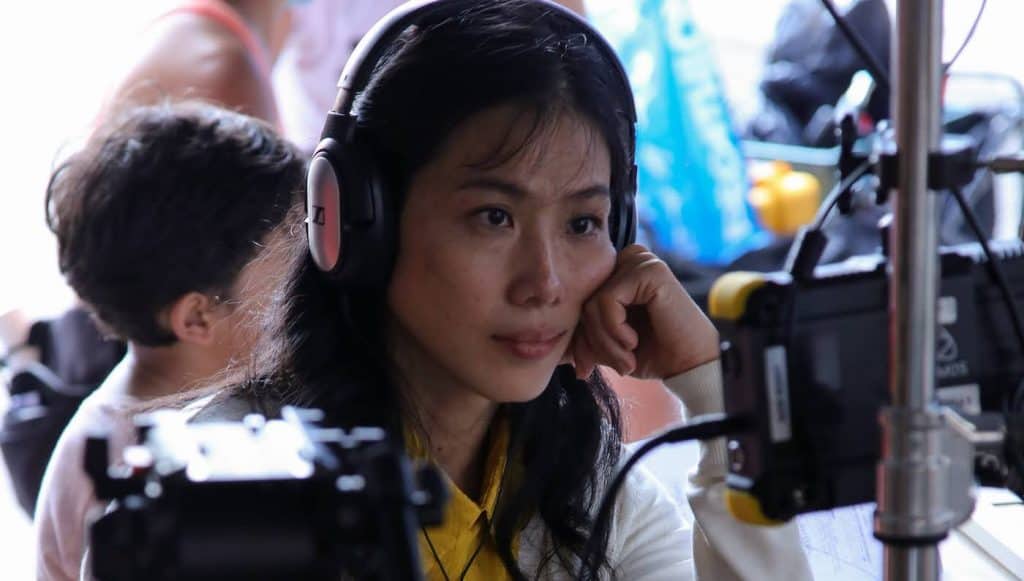
So the process of writing was like that, without a script. Instead I had index cards, where I wrote a scene and then we filmed it, and then something happened that made me write another scene, and then I arranged the index cards, and the scenes essentially, to see how it would work if we placed the first scene between two others, for example. I really liked this different approach in writing, it was the best way to overcome my writer's block.
In that fashion, we managed to shoot some scenes in Phuket, the two weeks we stayed there. I would also like to mention a bit about the particular place we shot. In Thailand, regarding tourism, they do these things where whole places are dedicated to a specific kind of tourists, surfers for example. In our case, the whole place was devoted to fighters, martial artists, and you could find there, anything a fighter could need. For example, there were many MMA gyms and fitness gyms, and cafes with specific menus and diets for fighters, and you could find all of these on the main street. That is why I thought this was a great place to shoot this film.
Later on, I met Bianca Balbuena and Woo Ming Jing in Malaysia and I told him about my idea, but he thought that I should do the film in this mockumentary style. He convinced me to write the script properly and rework the whole thing essentially, through a completely different process. It was actually the first time I worked with someone, writing the script together. We had a brainstorm session once a week, where I would tell him any new ideas I had and we would go through it together. Sometimes, my ideas were silly, because I really have trouble with writing. I have a lot of ideas but when I sit down to write, I just cannot. Woo Ming Jing also helped me in that regard, and also had some very good casting suggestions. He was the one that pushed me towards Pete Teo for the role of Roger, and he also gave me some very good suggestions for the role of the ex-husband. Nevertheless, it turned out that we worked well together and managed to turn up the script quite fast. It was fun, the whole process actually.
Maja Korbecka: How was your cooperation with Kamal Sabran regarding the soundtrack of the film?
I first got to know him also through Pete Teo, because back in 2008 or 2009, we had a project with 15 Malaysian directors, each of whom shot a short film and Kamal Sabran shot an experimental one, where he, of course, also did the music for. Later on, three or four years ago another friend cooperated with Kamal for his movie score, which I liked a lot. Although the film is very Chinese, I wanted to have more Southeast Asian elements. Therefore, I approached Kamal and told him what I wanted and he sent me 5 batches of music. The first time he sent me 15 tracks to check which is the feeling I want to go with and on the fifth batch, we sort of locked on the main music. He continued working on it though, again and again. You should check him on Youtube, because his studio is a magical setting where he collects all these low-fi, analog, audiovisual devices, which he plays when he is composing.
He is a really special guy; for the past two, three years, he has been doing a very special performance called Sleeping Class, you should also check that. I do hope I work with him again for my next film.
Łukasz Mańkowski: I wanted to ask you about the aspect of reclaiming the body you mentioned before, as an element of the script writing. This element also clicks with Jacky Yeap's film, “Sometimes, Sometime” where you also play the role of the mother, so, I was wondering, what was this process of reclaiming the body, from a carnal perspective, since you also mentioned you did martial arts. Did you actually reclaim the body?
Through this process, I don't think I did, but I still continue doing martial arts, especially Brazilian Jiu Jitsu. Regarding the conversation of reclaiming the body, it started with this Chinese filmmaker Lee Hong Chi. He came here to give a workshop on script writing and he told me about the concept of getting back your body, or to have control of your body. There are many who do not like their body or are ashamed of it, who would rather be invisible. I believe that people think the mind is them but the body isn't, that their body does not represent who they are. I find this way of thinking really strange. I have to admit I did this movie for myself, to understand this concept in real life, to go through training and think about it. To have control of your body is such a difficult thing. My way of thinking actually comes from Foucault, that there is no separation between body and mind.I can only say that I am trying to experiment, to know what my body is doing essentially and I think martial arts is the best way to achieve this, because you always need to know what your body is doing and what your opponent's body is doing.
Adriana Rosati: On this line, the film is without a doubt, very, very personal to you and therefore I feel that It wouldn't have had the same impact if the lead role was given to another actress. Is that why you decided to play Moon and how challenging was it juggling the two roles of director and lead actress?
Filmmaking for me is more for myself. I usually make films to solve something in my life or to answer some questions I have. So, although I think the film might be better with an actress playing Moon, because then I can really control the acting, this would not help me to go through the journey of reclaiming the body. I consider this journey a body experience, and having someone else undertaking it, it would not help me, even if it was better for the film. It is a selfish decision, it is not just that the film is personal, the film is for me. However, I do get really worried and anxious about my own performance, but I think this also is a part of the process.
Maja Korbecka: When I was watching “Barbarian Invasion” and I saw you wearing a wig, I thought of “Sometime Sometime”, and I was wondering if there is some backstory behind the wig.
No, they are actually different wigs, but they look the same. Actually when Jacky Yeap was in China, quite a lot of people mentioned the wig, because there was one in 2020 (“Sometime, Sometime”) and now one also in my film and we made fun of the whole thing. Regarding Jacky's film, in the beginning I thought it was so silly that the mother had to wear two wigs, one on top of the other, but it was a significant aspect of the movie actually. For “Barbarian Invasion”, it was not as significant, it was just a plot device that signified how the protagonist was copying “Bourne Identity”.
Łukasz Mańkowski: In the film, there is also this distinctive feeling towards the past, with quotes like “Film was Everything, now everything has fallen”, which perhaps links to the past, of Malaysian New Wave, whom you were also kind of responsible for. So, I was wondering, what is the connection between your film and the New Wave of Malaysian filmmaking from your perspective? What does the film tell us about the reality of filmmaking of Malaysia?
We always say we didn't get a new wave here in Malaysia. We started something, but then it all went flat (does a swooshing gesture, with her hand, towards the floor); it wasn't a wave. The very clear thing you see compared to other countries, in Thailand and Indonesia for example, is that what the filmmakers did had some impact afterwards, but in Malaysia, it just stopped. The filmmakers shooting films now do not know anything about the Malaysian films ten years ago, which, for me, is ok though. For me, it was more about friendship, a group of friends that start making films together, and we still follow each other, witnessing some getting married and having kids or going from shooting two films every year to one film every two years, or not shooting films at all. And we enjoy this, even though film may not be as important as it was 10 years ago. We do enjoy life more now, even during our film production; it is like having a picnic on the beach kind of feeling.
Adriana Rosati: Your character, Moon, is facing lots of difficult choices and metaphysical questions about her real self. However, I really enjoyed the humour and the sense of fun this film oozes. I literally burst into laughter when the monk says: “red pill or blue pill?”. So, how important are choices vs destiny and having a laugh in your work and life?
Quite often people think I laugh too much, like I laugh at many things. Not so appropriate, but sometimes I find many things laughable. I make jokes about a lot of things. I'm not sure for and and of course during the film shooting I'm not the funniest one, Woo Ming Jin is the one. He's the producer but he's really the one who keeps cracking jokes to make everyone laugh. He's the one that keeps the atmosphere really light, even some nights, when we are very tense, tired. I'm not sure if it is a Southeast Asian thing. People there try or like to be more chill and relax. The whole filming, the whole process is really a lot of jokes, everyone just keeps making fun of everything especially James Lee who played Master Loh.
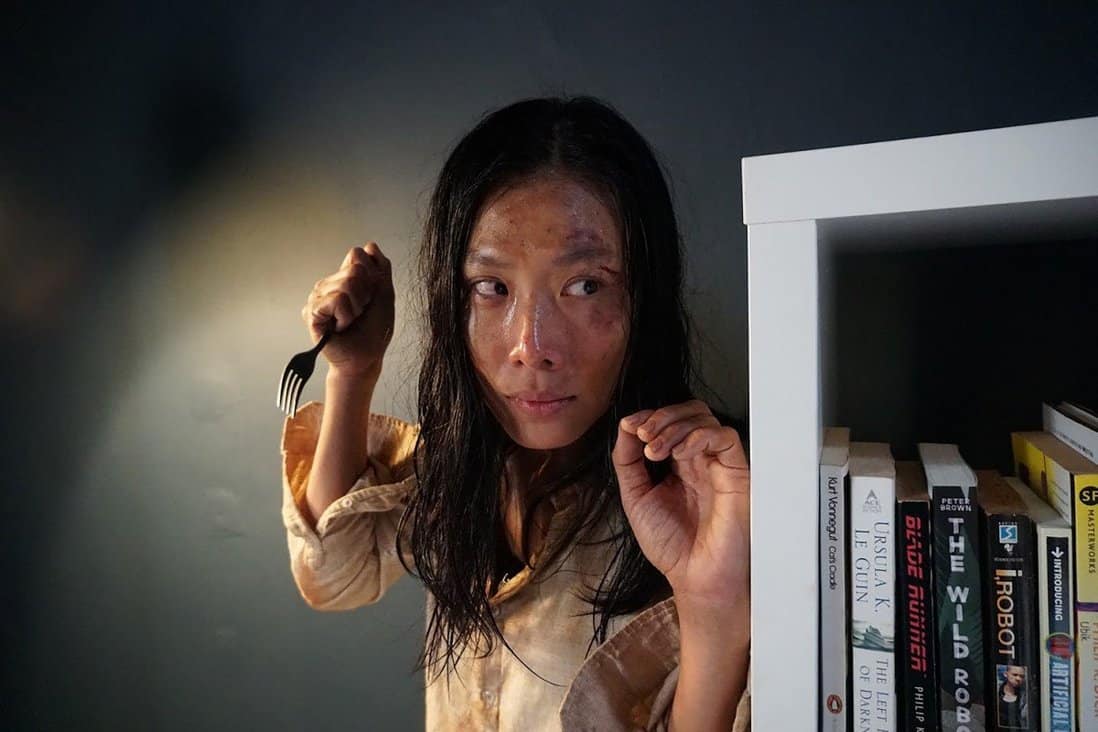
Adriana Rosati: Yeah, he is quite funny.
Yes, he is always making fun, he was really having fun playing that character. Laughing and having fun is one of the things we enjoy more, I think it is the best way for our process. There were a lot more jokes that in the end we didn't fit in the movie. It would have been too silly.
Adriana Rosati: And was it James Lee that added the fun element to Master Loh character? Or was it in the script?
Originally the character of Master Loh was really very strict, like a real kung fu sifu type of character. But James was the one who had different ideas about the character. He suggested that maybe this Master Loh is not like a real master, and that maybe he is a con man. We should not know if he really is a master. And so, he wanted to play it on the borderline; if this guy is just a con artist or a real master, he will not know. He did try different characters. At first he really played it hard, a Bruce Lee type of character and that was how it was in my script, but it was still funny because you listen to Bruce Lee and you will still laugh because it's just too serious. And then he tried to play a bit more relaxed, or slightly campy which is also over the top. So, then he just played in between; he's serious, but actually his seriousness is very funny or laughable. He also added a lot of small details, like every time he stood up and walked, he would pull his pants and adjust, like all these really silly old Chinese men type of moves.
Maja Korbecka: Why did you decide to work with Nick Hadiff Tani, in the role of Moon's son in the film?
From the beginning, when we did the mockumentary and audit, I was using my kid. Most of the time, people would say, “It's okay, bring your kid” or “We can take care of him together” and all that, but when they actually experienced the whole thing, we realized no one can handle him. Also in the pre-production process, I would bring him to the office because I need to take care of him and it would take like three or four people to look after him, which would make it impossible to work. It was very disruptive. It was quite early in the script stage. Ming Jin and Pete Teo had already told me they're strongly against using my son; they have seen my son, they know how he is and they see how I am with him.
Therefore, we agreed to hire a child actor, but to find out who can follow instructions, we had to bring the age of the character a bit higher, to six years old. But then it was difficult to get a kid to be as naughty as my son, so this part was lost. It is a pity. I do not know how it would have worked out if we had actually used my son, it was a dilemma, but I am sure we would have spent five times more shooting.

Łukasz Mańkowski: Ethnicity is also an important aspect in the film, there's use of Malai, Mandarin, Cantonese languages. I think it was either James Lee or Woo Ming Jing who said that Malaysian filmmakers implement the concept in a rather hermetic way and I was thinking that the way you implement it could be the answer on how it is supposed to be shown in the future.
It was not very intentional. I do think it is important, because in reality, what you see in the film is real. For the Chinese people, probably their whole social circle is only Chinese. And they only speak Chinese. Only in the urban areas, maybe they are more mixed and also in certain professions, like the film industry, we are a bit more mixed. What you see in the Malaysian films, I do not think is the reality, either. So it is just a choice: you can make a film of a certain group of people, with people that only speak Chinese or people who only speak Malay, which is actually the priority in Malaysia. For “Barbarian Invasion” I thought that since there was already the decision of my son not playing in the film, I had more freedom to choose my ex-husband, since my actual son looks very Chinese. At first, I thought of looking for an Indian actor, but Ming Jing suggested Bront Palarae for the part, which I consider one of the best Malay actors and is someone who I like a lot. Bront's presence essentially also dictated the actor who would play Moon's son. The casting also aimed at making Moon's character a bit richer regarding her history and background, having a Malay ex-husband for example.


